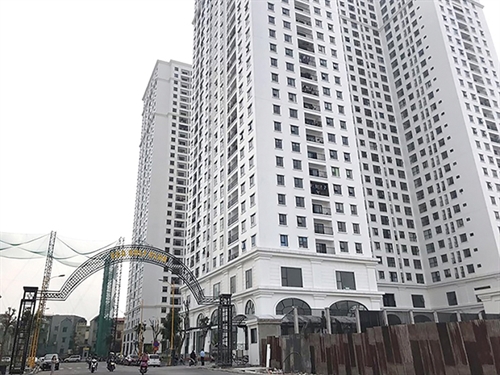Nguyen Thuy Duong[1] (*) and Bui Duc Giang[2] (**)
In lending practice, leasing out a charged asset is common practice for the chargor to exploit the value of such asset. There are still loopholes and drawbacks in the legal framework governing the relationship between the lessee and the chargee of an asset. For this reason, there are many risks facing banks as chargees.
The charge agreement is entered into before the lease agreement
Article 321.6 of Civil Code No. 91/2015/QH13 dated November 24, 2014 (the “Civil Code”) allows the chargor to “lease out […] the charged property, provided that the chargor notifies the lessee […] that the property subject to the lease […] is being charged and that the chargor gives notice to the chargee [of the lease]”. This case happens where an asset (i.e. a building) is charged to the bank and then the chargor (who is the owner of such asset) leases it out to a third party.
According to the aforesaid article, the charged property may be leased out but the chargor must give notice to both the lessee and the chargee. This notice is necessary, for the lessee needs to be informed that the chargee has acquired some rights over the leased property and the chargee also needs to be aware that the chargor is currently exploiting the asset by leasing it out in order for the chargee to be able to properly manage the legal condition of the secured asset. From the chargee’s point of view, this notice requirement stems from Article 320.5 of the Civil Code under which the chargor is obliged to “provide information concerning the actual condition of the charged asset to the chargee”.
In other words, the purpose of the notice is to inform the lessee and the chargee of the actual legal state of the asset.
As the Civil Code does not clearly state at what point in time this notice must be given, it can be inferred that such notice can be given before or after the lease is entered into. However, the lawmaker should have introduced the obligation on the chargor to give notice prior to entering into the lease, such approach appearing to be fairer to the lessee.
Furthermore, the Civil Code does not expressly provide whether the lease is legally binding in case the bank (i.e. the chargee) has not been notified thereof. In accordance with Article 119.2 of the Civil Code[3], it is clear that the notice is not a formal requirement for the lease to be enforceable against the parties to the lease. The Civil Code also lacks provisions regarding the obligation to indemnify the lessee in case the lessor has failed to give such notice and thus has caused damage to the lessee, particularly when the bank realizes the charged asset.
At this respect, one question arises: if a charged asset is subsequently leased out and then the bank realizes the charged asset, does the lessee have the right to remain on lease as agreed with the chargor in the lease agreement? The Civil Code is silent on this point.
In essence, a lease agreement is an agreement whereby the lessor transfers its right to use the leased property to the lessee during the time of effectiveness of the lease agreement. In case the bank realizes the charged asset, the chargor will no longer have his/its ownership thereof and, as a result, the right to transfer the right to use the asset to someone else.
If duly registered by the bank, the charge will be enforceable against the lessee (as a third party to the charge with a competing interest against the bank) from the time of registration (Article 319.2 of the Civil Code). In other words, if the registration precedes the conclusion of the lease, the bank’s rights will be enforceable against the lessee[4].
For those reasons, in principle, the bank does not have the obligation to maintain the initial leasing relationship between the chargor and the lessee. However, it should be noted that the lack of specific provisions on this matter exposes banks to various risks.
 |
| Eco Lake View Apartment & Condo Building in Hoang Mai district, Hanoi__Photo: Internet |
The charge agreement is entered into after the lease agreement
The Civil Code does not contain any provisions governing charges over leased assets.
If the secured asset is a residential house, Article 146.1 of Law on Housing No. 65/2014/QH13 dated November 25, 2014 (the “Law on Housing”) stipulates: “the homeowner is entitled to charge his/its house currently on lease provided that he/it gives prior notice to the lessee of the charge in writing. The lessee is entitled to remain on lease until the expiry of the lease term.”. Therefore, a landlord can charge his house which is being leased out provided that he notifies the tenant of the charge in writing. It appears the Law on Housing is clearer on the time of giving notice (i.e. prior to the entering into of the charge agreement) than the Civil Code, which, as mentioned above, only states that the chargor is obliged to notify the lessee, without specifying when the notice must be given.
Article 146.2 of the Law on Housing provides: “in case the house on lease is realized to fulfill the obligations of the chargor, the lessee may be entitled to remain on lease until the expiry of the lease term, unless the lessee breaches the provisions of Article 131.2 of this Law or otherwise agreed by the parties.”. Article 132.2 of the Law on Housing states that the landlord may early terminate the lease agreement in the case of certain breaches by the tenant, such as failure to pay rentals as agreed, use of the house for improper purposes, demolition, expansion or renovation of the house without the homeowner’s consent, etc.
As such, if there is a ground for enforcing the charge, the chargee will be entitled to realize the secured asset. Consequently, the chargee or the purchaser of the asset will become the new landlord (and new owner) (in case the bank realizes the charged asset either by appropriating such asset in lieu of repayment of the loan or by selling the asset to a third party) and the tenant will have the right to remain on lease until the lease agreement expires. Banks should take this scenario into consideration when drafting charge agreements since the obligation to maintain the lease on enforcement will significantly lower the liquidity of the secured asset. For the same reason, when valuing secured assets on lease, the bank may consider deducting the rental amount paid in advance by the lessee to the chargor from the date of conclusion of the charge agreement until the end of the lease term. Furthermore, the bank also needs to get the chargor and the lessee to contractually agree not to vary the lease agreement in an unfavorable way to the bank (for example, by extending the lease term or adding obligations on the landlord).
Before entering into the charge agreement, the bank needs to verify whether the lease agreement contains any provisions forbidding or restricting creation of charges of the house on lease. If such clause exists, the bank needs to negotiate a revision with the parties to the lease in order to enable the creation of the charge.
The legislation on real estate business still lacks provisions governing resolution of conflicts of interest between the lessee of a construction work other than residential houses (e.g. a commercial building) and the charge of such construction work. Such legal loophole is a pity and needs be closed in the near future so as to create a safer legal framework for the parties to the transactions.
From a practical perspective
It should be emphasized that, in practice, disputes between banks and chargors may be delayed or reach an impasse when the lessees act as parties with related rights and obligations in legal proceedings. In application of Article 68.4 of Civil Procedure Code No. 92/2015/QH13 dated November 25, 2015, the court must serve summons to all individuals and households living in, as well as companies renting business premises located in, the building, to participate in proceedings as persons with related rights and obligations. However, in many circumstances, because the number of those persons is significant and subject to change, the court cannot summon all of them, making the case almost impossible to be heard and handled properly.
In reality, when drafting charge agreements, banks often request lessees to make certain commitments, notably waiving the above-mentioned right to remain on lease on enforcement. Such agreements are perfectly enforceable under the current law, although obtaining the lessees’ consent is not always an easy task as such waiver would directly affect the lessees’ rights.
The above analysis shows that the legal framework governing the relationship between lessees (especially when it comes to real estate) and banks (as chargees) remains a source of risk for the latter. Additionally, in practice, charge agreements can hardly prohibit the chargor from leasing out secured assets since the exploitation of secured assets by means of a lease may constitute the main source of income (cash flows) which will be then used to repay the loan. This is why banks need to be extremely careful, in particular when drafting charge agreements, in order to obtain a balance between the chargors’ right to lease out secured assets and the banks’ right to (effectively) realize secured assets.-
Email: bui.counsel@gmail.com. The author has extensive experience on industrial zone development, banking, security and corporate law and regularly gives lectures on secured lending to banking staff.









